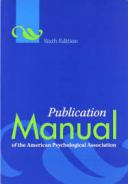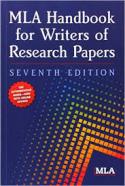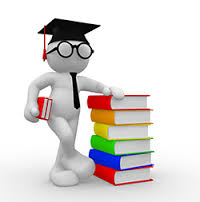There are a number of books that graduate-level academic writers should, at the very least, be aware of, and in many cases own. Creating a robust library of resource books is a must for anybody making their way through a master’s or doctorate program. I own several of the books mentioned here and I plan on checking out several more that appear on this list. I have borrowed this specific list from the University of Toronto: http://www.writing.utoronto.ca/books/writing-for-graduate-students. Their website has several categorized lists of resources for students of all levels including those in graduate programs. Here is the list that they offer online for graduate level writers:
American Psychological Association, Publication Manual
Besides giving detailed advice on format for referencing and page layout, this handbook covers such technicalities as abbreviations, numbers, and figures. Chapter 3 gives brief advice on writing style and a quick review of grammar, and sets out clear guidelines on avoiding unbiased language. Chapter 8 and the Appendix include advice on publishing, including reporting standards for articles using new data collections. Be sure to use the sixth edition, published in 2009: it changes a number of rules from those given in earlier editions.
Becker, Howard S. and Pamela Richards. Writing for Social Scientists: How to Start and Finish Your Thesis, Book, or Article
For advanced work; advises on efficient ways to produce and publish academic work.
Cook, Claire Kehrwald. The MLA’s Line by Line How to Edit Your Own Writing
Solid and well-explained advice on academic style; worth studying for humanities scholars and anyone else aiming at clear complex prose.
Day, Robert A. How to Write and Publish a Scientific Paper
Solid, though old-fashioned advice on constructing and revising research papers.
Flemons, Douglas. Writing Between the Lines: Composition in the Social Sciences
An excellent guide to writing strong, logical, and clear prose to present research material. Focuses mostly on style at the sentence level.
Galvan, Jose L. Writing Literature Reviews: A Guide for Students of the Social and Behavioural Sciences
A comprehensive guide to writing reviews of empirical research: starts with how to read documents in their disciplines; discusses literature reviews as part of essays, dissertations, journal articles; includes samples.
Harman, Eleanor and Ian Montagnes, ed. The Thesis and the Book
Elegantly written and sometimes humorous essays asking for elegantly written academic books. Worth reading, but don’t look rely on it for quick solutions.
Huth, E. How to Write and Publish Papers in the Medical Sciences
Authoritative guide to advanced writing, good section on Vancouver referencing system
Locke, Lawrence F. et al. Proposals That Work: A Guide for Planning Dissertation and Grant Proposals
An excellent resource. Focuses on scientific argumentative patterns, shows examples of four kinds of proposals for different types of research.
Luey, Beth. Handbook for Academic Authors
Thorough and sensible discussion of the practical aspects of scholarly publishing. Chapter 2 on journal articles covers good writing style, selecting a journal, and dealing with rejections. Other chapters touch on manuscript preparation and proofreading.

Modern Language Association. MLA Handbook for Writers of Research Papers
The standard work for referencing methods in Humanities subjects. The seventh edition, published in 2009, has a thorough and helpful section on citing electronic and online sources. Chapter 3 gives advice the mechanics of writing.
Nickerson, Eileen T., The Dissertation Handbook: A Guide to Successful Dissertations
A brief guidebook on the various stages of the dissertation. Chapter 12, “Life After the Dissertation,” touches on professional presentations as well as articles. It advises on such practicalities as the query letter and timelines for responses.
O’Connor, Maeve, Writing Successfully in Science
Knowledgeable advice from a journal editor on planning, writing, and publishing academic work in the sciences.
Swales, John M. and Christine B. Feak. Academic Writing for Graduate Students: A Course for Nonnative Speakers of English
Thorough coverage of all aspects of writing academic papers, offering tips on vocabulary and grammar along with explanation of standard structures of reasoning. Units 7 and 8 cover Constructing a Research Paper, including comments on defining a niche for the topic and making rhetorical moves to convey that intention to the reader.
Swales, John M. and Christine B. Feak. English in Today’s Research World
More advanced than the above book; useful for native speakers of English too. Chapters on professional genres such as the conference abstract, poster presentations, some elements of dissertations. Targets specific problems, gives exercises and models, shows how to make judgements on your own.
M. Zeiger. Essentials of Writing Biomedical Research Papers
A thorough self-instruction guide to reasoning, style, and organization.
